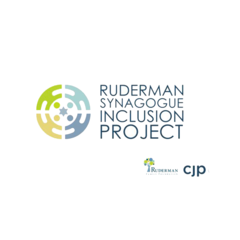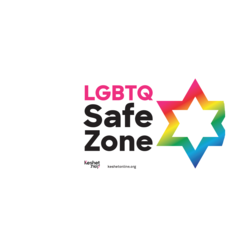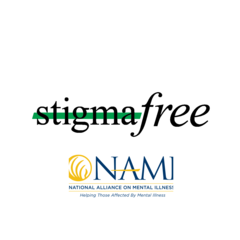Yom Kippur 2007
Shana Tova.
Some of you may remember that a long time ago, in a galaxy far, far away, I stood up here with some regularity to address the congregation. But when Rabbi Jaffe asked me if I would once again ascend the bimah, this time to describe my Jewish journey on the afternoon of Yom Kippur, I first felt tremendously honored, then somewhat intimidated, and finally, frankly terrified. Now, having accepted the challenge of trying to construct a roadmap of where I’ve been and where I might possibly be going, what I feel most is gratitude to have been given this opportunity to describe to you, and to attempt to clarify for myself, this journey; and yes, I am still so very honored that you asked me. Thank you.
Jews have always taken journeys, many, if not most, out of necessity and under duress. “The Wandering Jew” is well established in our collective psyches and with good reason: the Journey, the very basis of our Torah, has repeated itself countless times in our people’s history. Whether from Minsk to Manhattan, Berlin to Brooklyn, or Baghdad to Beersheva, each journey recapitulates the Exodus, from Mitzrayim, a “narrow place” to Eretz Zavat Chalav, a “land flowing with milk and honey, from enslavement to redemption and freedom. And though I have had the great fortune to live in a land where Jews enjoy more freedom and prosperity than at any time in our history, and have not been forced by circumstances to leave or to escape, my journey, at least figuratively, bears some similarities to those of my forbearers, both immediate and remote. Friends, I am wandering; I have become a “Wandering Jew” in situ.
My journey begins with that of my parents; both born in Germany, they shared a first cousin, and so actually met there as children. After Hitler came to power in 1933, both my parents, though especially my mother, of blessed memory, suffered the increasingly brutal degradations of anti- Semitism. When their families finally read the handwriting on the wall, it was almost too late. My father’s immediate family got out intact in 1939; their journey took them through Holland to England and on to New York. By 1940, exit visas for the United States were exceedingly difficult to obtain; my mother was the only member of her family that did. Because the war in Europe was already raging, and because Hitler and Stalin were still buddies, my mother left Germany, alone, at the age of 16, embarking on her journey that would take her eastward through Siberia, Manchuria, Japan and Seattle to New York, never to see her parents or sister again. In New York, my mother and father became reacquainted and the rest, as they say, is history.
Many families who were touched by the Holocaust chose never to discuss it with their children; my parents, or so it seems in retrospect, spoke of it incessantly. Family reunions were often marked by long discussions about relatives who perished in the Camps; Hitler, it seemed, had done a pretty good job of pruning my family tree. And so my first feelings about Judaism were tinged with anxiety, if not outright fear; the occasional anti-Semitic act in our suburban town did nothing to help. This anxiety, I believe, set me apart somewhat from even the other Jewish kids I knew; none of them were first generation Americans whose parents had escaped Europe; but other than this rather significant difference, I had a fairly typical upbringing in Classical Reform Judaism: we celebrated Shabbat and the Holidays; I attended Sunday School and hated every minute of it. But by far, the highlight of my early Jewish experience was Youth Group; NFTY provided me with a rich mix of cultural, religious, spiritual and social experiences. I had never felt better about being a Jew, but as is typical, any religiosity or connection with Jewish institutions hibernated when I went to college, to reemerge only when Anne and I were married, and began to contemplate starting a family.
Enter TempleIsaiah. Anne and I joined this wonderful Congregation in 1982; we were warmly greeted by Irving Belansky (weren’t we all?) and by Michael and Sydney Pearlman, and then basically became invisible until we joined Family Connection, then in its infancy, in about 1991. Through Family Connection and with the help and inspiration of Rabbi Cary Yales, of blessed memory, I discovered that there was more to Judaism, a lot more, than the sadness and loss associated with the Holocaust. I became active in various committees and the Board of Trustees and ultimately became President of the Congregation.
All that I have just described is prologue, a prelude to the journey on which I now find myself. Looking back, the road on which I had been traveling was the Interstate of contemporary American Reform Judaism, more or less proceeding in a straight line without a lot of detours or deviations or even Howard Johnson’s. I was moving along, but with an increasingly nagging sense of dissatisfaction; for me, this road became a narrow place, another Mitzrayim, and it was time to leave.
Why such dissatisfaction? For many years, I have become increasingly disenchanted with our liturgy to the point that I now find it difficult to sit through a traditional Reform Service, and when I do, it is most often with the siddur closed on my lap. Why? Because it is rooted in a highly anthropomorphized God, an omnipotent, omniscient Creator who hears prayer, rewards those who observe the Mitzvot, and punishes those who do not; the very same God we all learned about in second grade, the very God that is best epitomized by the liturgy which we recite this very day, a God in which I can no longer believe.
In the best tradition of Jacob, I have struggled and I have wrestled with God, and have reached the point at which I no longer feel guilty or apologetic or frightened for rejecting those traditional images. What I am coming to believe would be very difficult to express to you in just a few lines, except to say this: just as the notions of the God which I have rejected permeate our ancient Texts, what I have come to believe as my nuggets of Truth reside there as well. To name just two: in Exodus 3:14, when God says to Moses at the Burning Bush, “Ehyeh-asher-Ehyeh…I will be what I will be,” that, for me, is permission, indeed an invitation, to wrestle and to struggle and to find a sense of the Sacred that holds meaning for me. And in I Kings 19, when Elijah finds that God is not in the earthquake, nor in the wind, nor in the fire, but in “Kol D’Mama Dekah…in the murmurings of a brook…in a still, small voice,” this magnificent passage has inspired me to search in new places for the Divine Force in the universe. These notions now accompany me everywhere on my journey and I am eternally grateful to those with whom I’ve studied Torah and God for continually showing me the relevance of these and other passages to my wrestlings.
As if this wasn’t a sufficient exit ramp off the highway, there is another: I have become extremely disillusioned with, and very cynical about, organized religion. All of them. I have come to believe, in my heart, that throughout the history of humankind, organized religion has done more harm than good. For while it is probably a basic function of human nature to enter into community with like-minded individuals, what seems to inevitably follow, at least when it comes to Western religion, is the glorification of “Self” followed by the identification and, ultimately, the demonization of “The Other.” History books have shown this time and time again, but unfortunately, what revealed it to me with crushing clarity (and I know I may be treading on thin ice here) was last summer’s war in Lebanon. I have often disagreed with Israel’s policies towards its neighbors, but this time, I was simply ashamed and appalled. Yes, Israel must defend itself against murderous suicide bombers and incoming Ktusha rockets, but to drop American-made cluster bombs on civilian populations: innocent men, women and children—this was madness and it was unconscionable. And in the months since then, after learning more about “The Troubles” on a visit to Ireland, and, first-hand, of the persecution of indigenous Mayan peoples by the Catholic Church in Guatemala, I question whether my pursuit of spirituality might not better be accomplished in the company of a few close friends, or even alone, rather than as a part of any organized movement, Jewish or otherwise, whose principles and values might too easily be compromised by geopolitical struggles over land or wealth or power or influence. On a more local and personal level, our shared affiliation with Judaism and its values have bound us together in this wonderful community; yet I fear that religious affiliation can also limit our horizons, narrow our vision, and place us all into our own “group silos.” Instead of confronting the issues of the day by asking “Is it good for the Jews?” we must question “Is it good for humanity?” “Is it good for our planet?”
And so, I am wandering. Leaving Mitzrayim was not easy for the Israelites of the Torah; it hasn’t been easy for me. The Wilderness can be a scary place, especially if one anticipates wandering around in it for a while, not knowing where those wanderings will lead. For example, given what I’ve just said, you may ask and I, too, have wondered, just what it is left of my Judaism? Now there is a frightening thought, but as I’m learning, the answer is “quite a bit;” I feel Jewish to my core, and my journey is still a Jewish one. And as a beloved teacher and friend has continued to tell me, “The Wilderness is a good place to be” and I’ve discovered that he is right; I’ve become more comfortable there. In the wilderness, there can be silence, and that quiet can bring clarity. Yet, I have come to suspect that, after the Wilderness, even if I can attain some type of spiritual Promised Land, the reality is that Promised Lands can and do morph back into Narrow Places, and then, it will once again be time to “hit the road.”
May we all continue to find the courage to leave our narrow places, to spend some time listening and searching B’Midbar, in the Wilderness, and in doing so, may each of us inscribe ourselves for another year of spiritual life, fulfillment and peace.
Shana Tova





